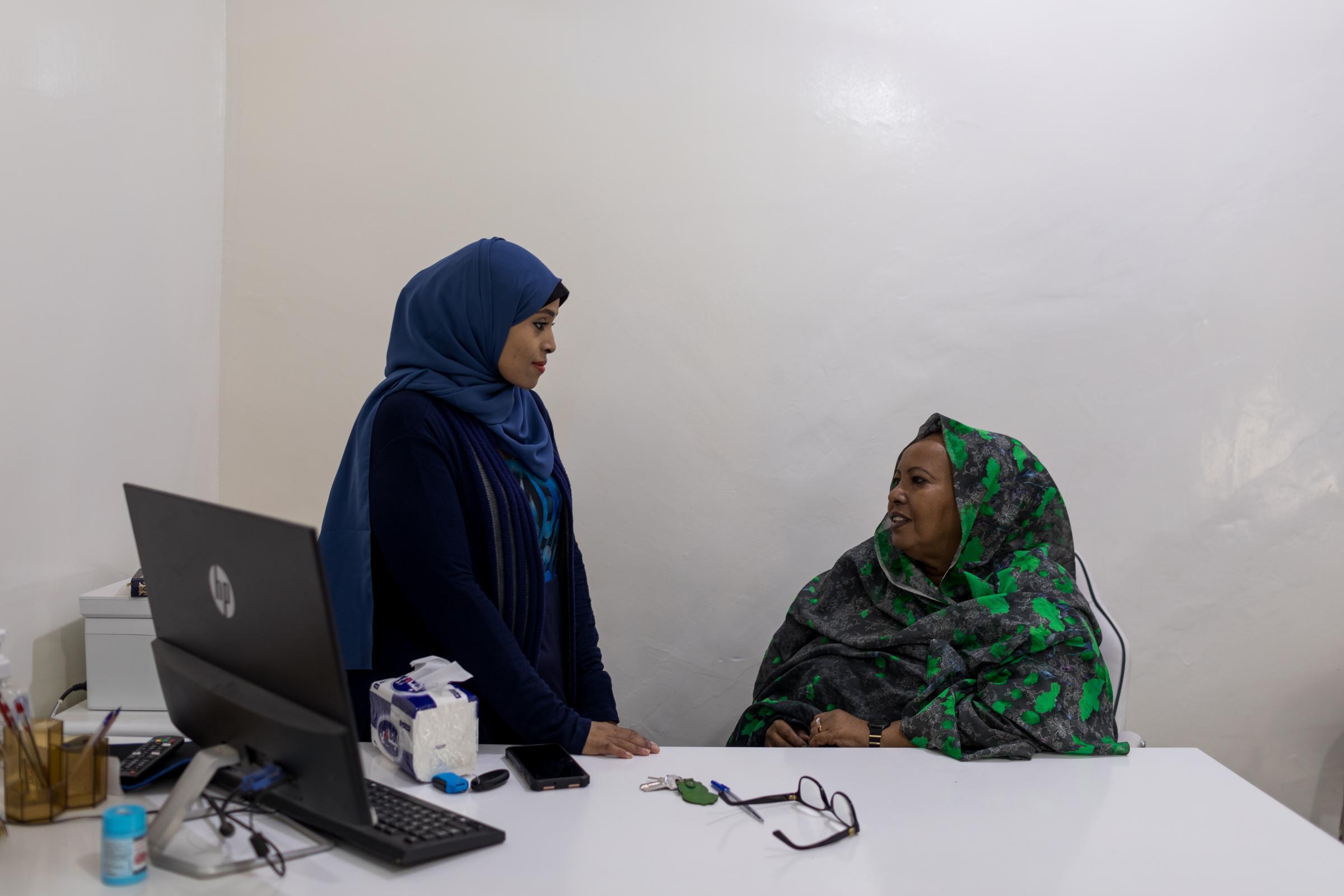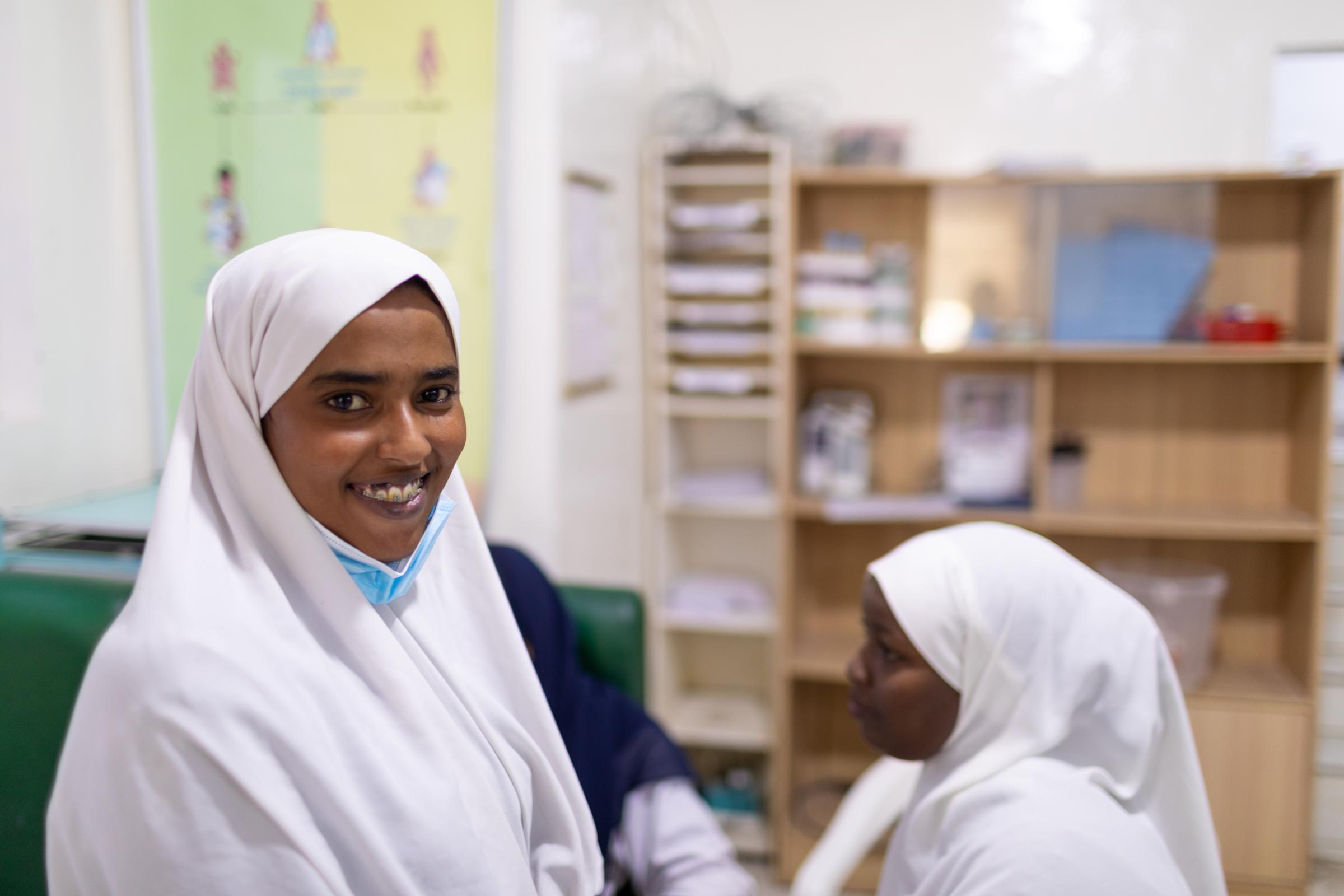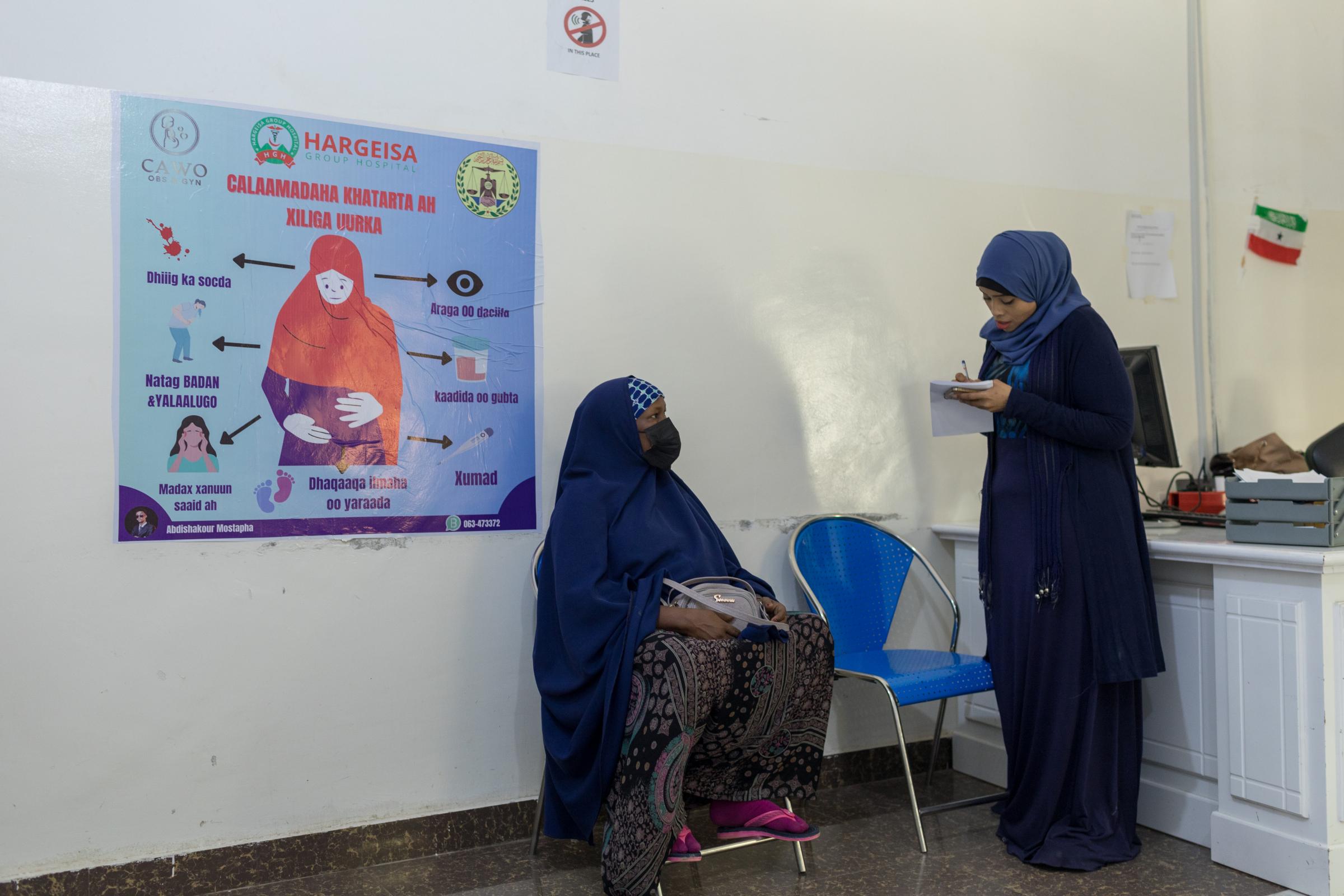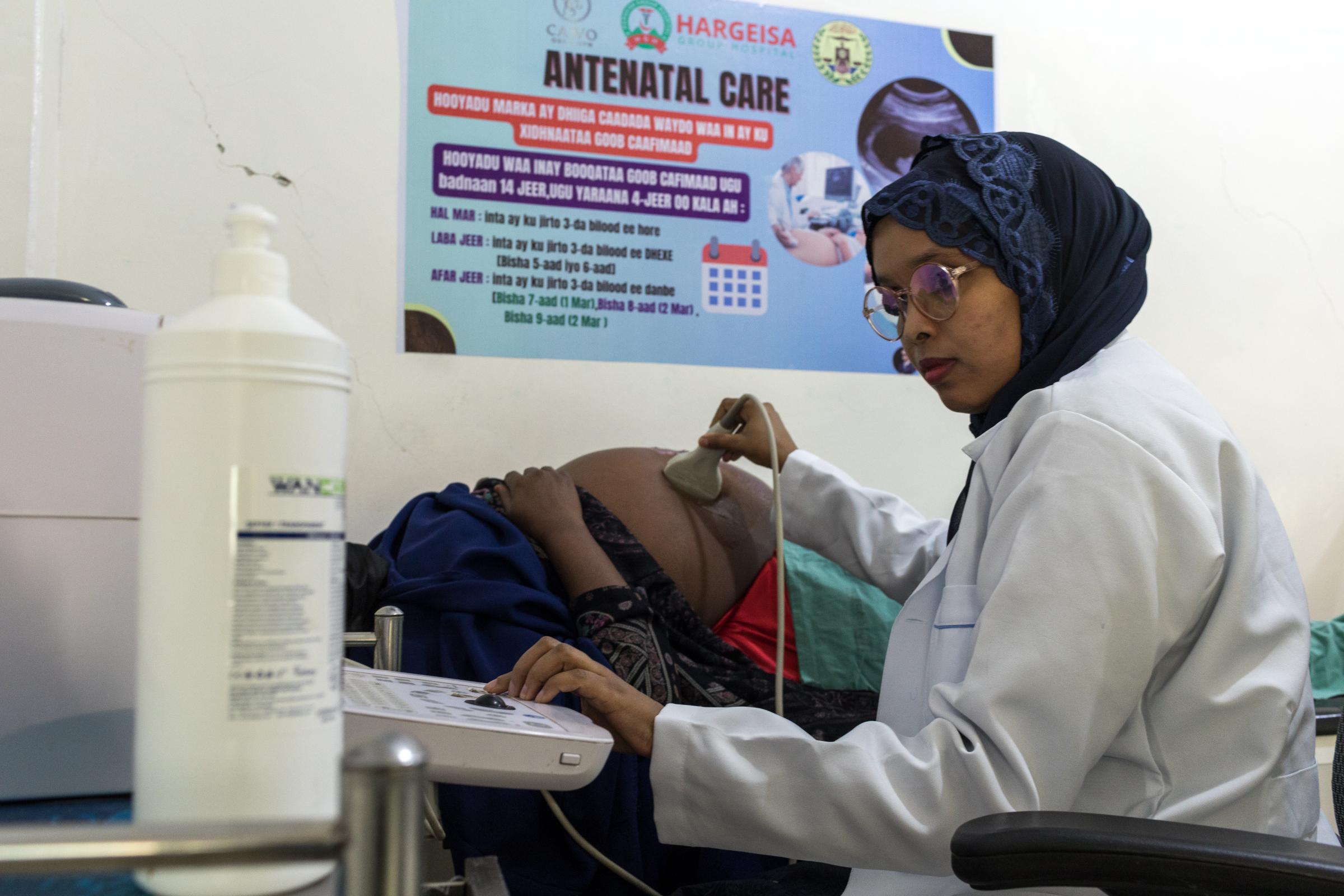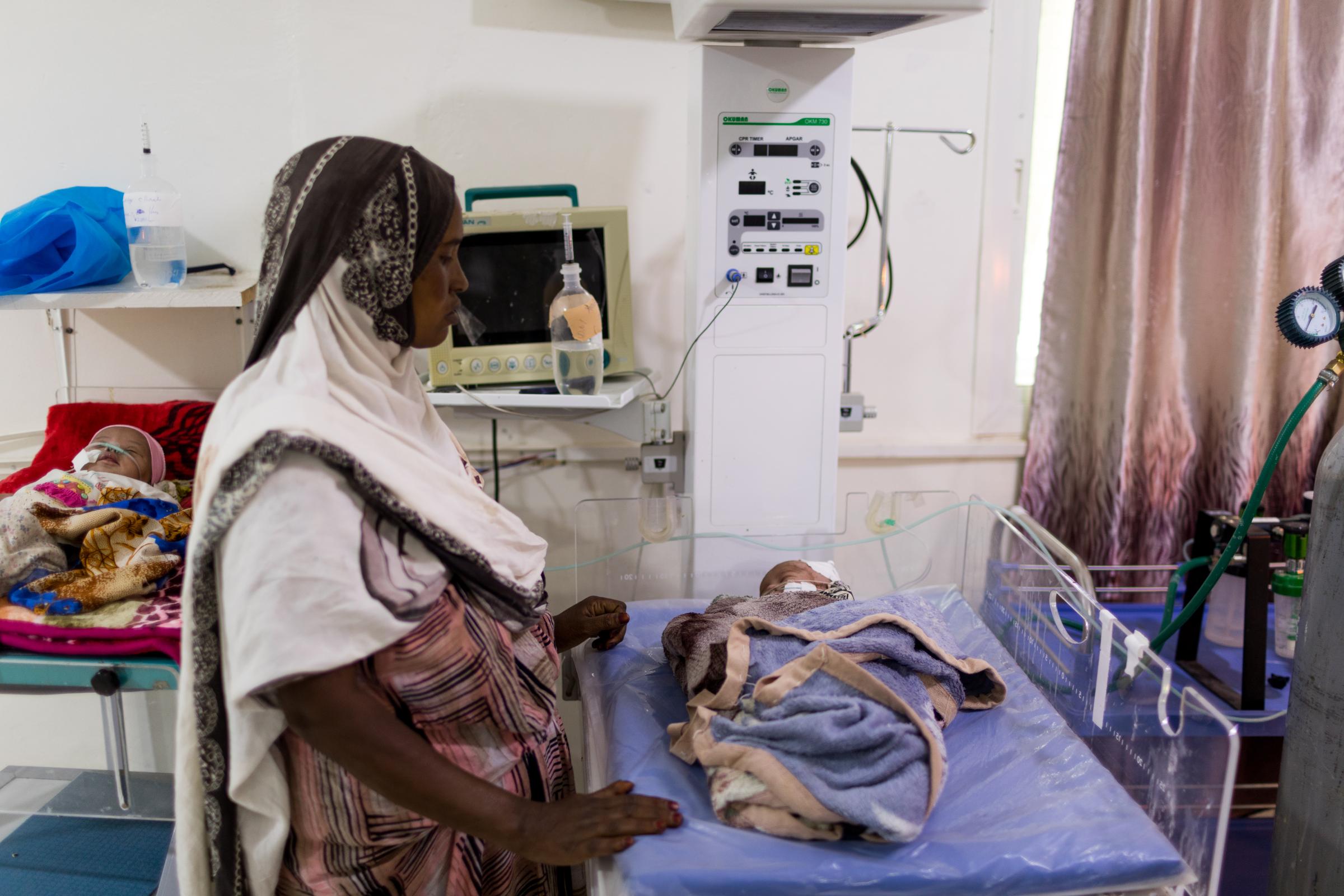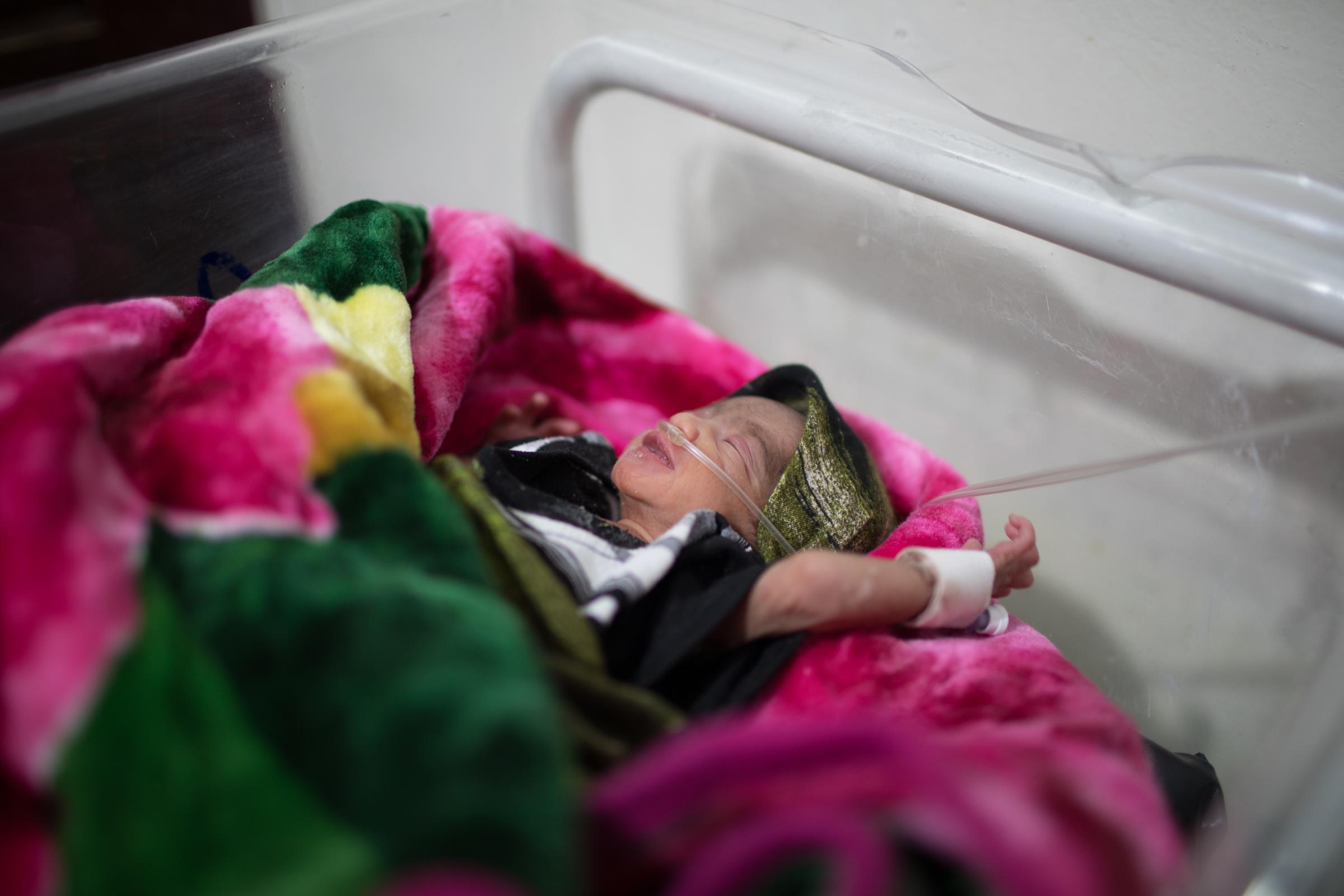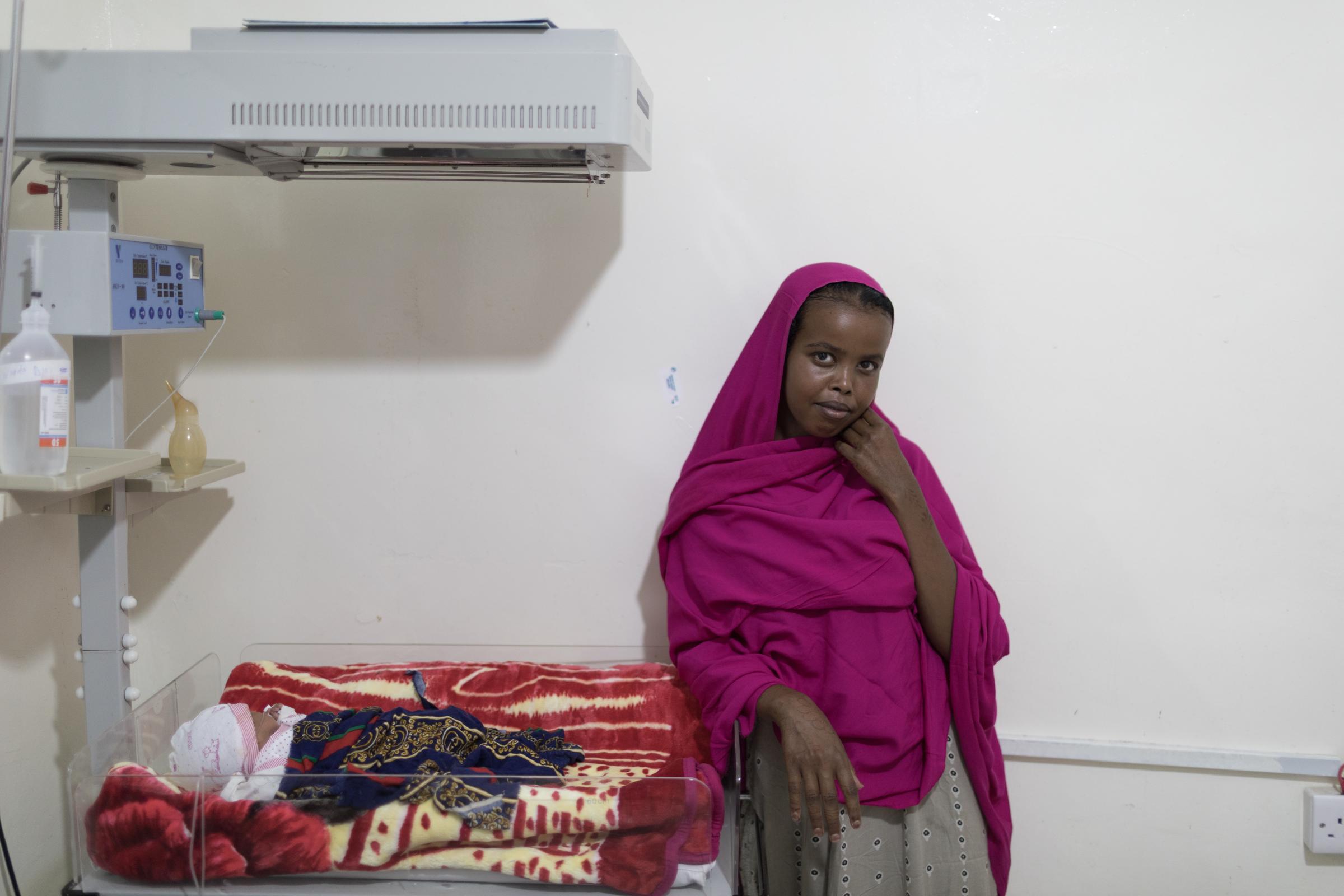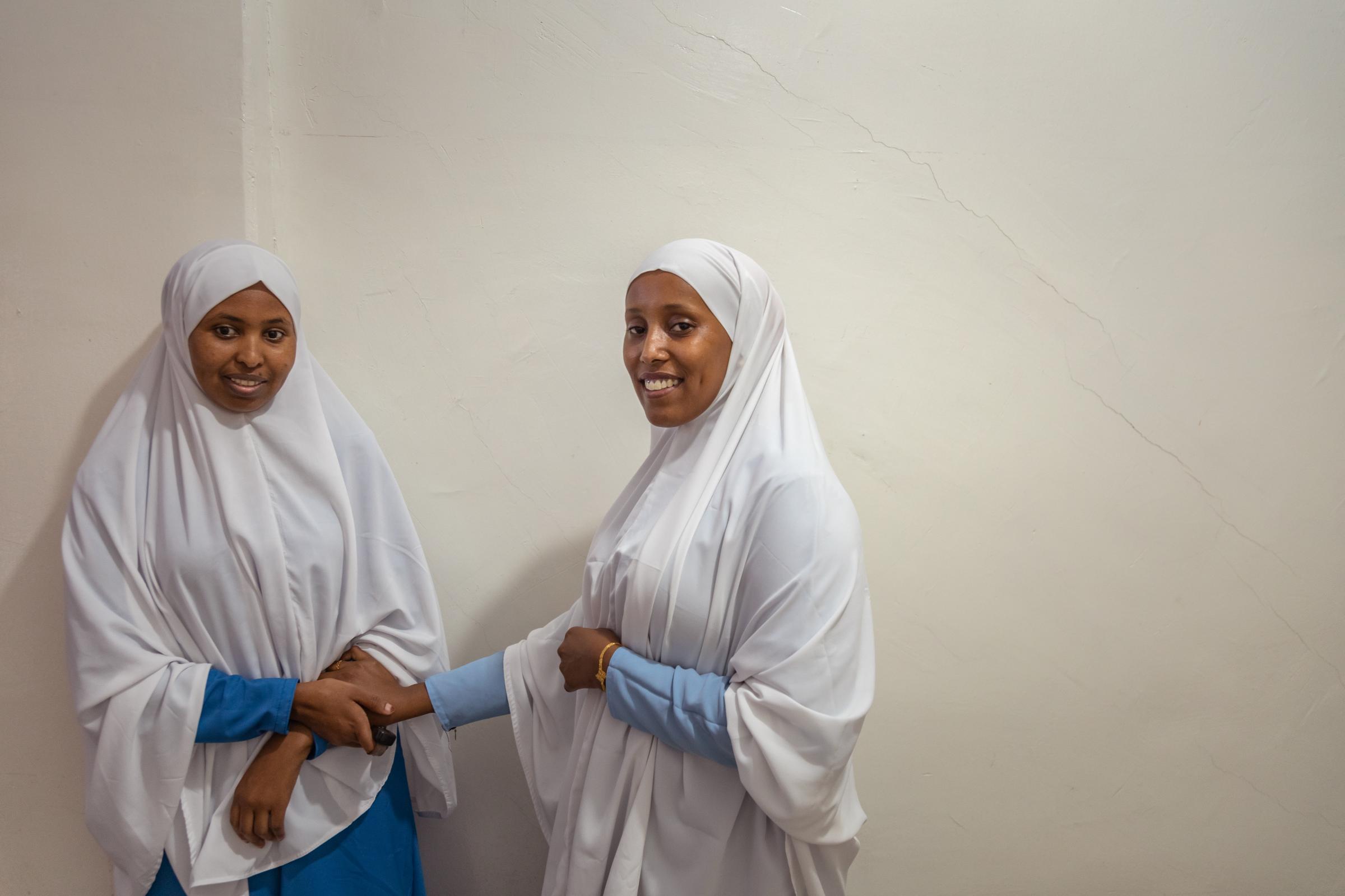UNFPA's Initiatives: Improving Maternal and Neonatal Healthcare

Bruno Feder
Photographer
based in Lisbon
HARGEISA, SOMALILAND — On a sunny morning of April 4, the Hargeisa Group Hospital, located in Somaliland, was bustling with activity as doctors and nurses rushed to attend to patients. According to the World Health Organization (WHO), approximately 810 women die every day from preventable causes related to pregnancy and childbirth, with the majority of these deaths occurring in low-income countries with limited access to healthcare services (WHO, 2021). These deaths are often caused by complications such as severe bleeding, infections, hypertensive disorders, and unsafe abortions. The United Nations Population Fund together with local governments have been playing an important role on maternal mortality rates decline globally in recent years, and efforts are being made to improve access to quality healthcare services for pregnant women.
The United Nations Population Fund (UNFPA), in partnership with the local government, has been implementing several initiatives to improve maternal healthcare and reduce maternal mortality rates in the country. These initiatives include providing training for midwives and other healthcare workers, improving access to family planning services, and strengthening Basic Emergency Obstetric and Newborn Care (BEmONC) services. Specifically, UNFPA has supported the establishment of comprehensive BEmONC centers, including the one at Hargeisa Group Hospital, and GBV Stop Centers which provide critical healthcare services and support to women in the region who are survivors of gender-based violence.
Dr. Layla Mohamed Hashi, UNFPA Sexual reproductive health specialist and Dr. Fatouma Hachi Iman, Head of the reproductive health department of Hargeisa Group Hospital on April 3, 2023.
Midwife Asma Mohamed, 19 years old, on April 3, 2023 at Hargeisa Group Hospital on April 3, 2023.
Somalia ranks 6th globally, with one of the highest maternal mortality rates (MMRs) of 692 per 100,000 live births in the world (Somalia Health Demographic Survey report, 2020). The ongoing conflict and instability, coupled with devastating drought, have significantly impacted the country's healthcare system and infrastructure, resulting in limited access to skilled birth attendants, emergency obstetric care, and other essential healthcare services, particularly for SRH care. Droughts in the region have led to crop failures, food insecurity, and malnutrition, weakening the immune system and increasing the risk of disease transmission. Additionally, conflict has resulted in the displacement of millions of people, overcrowded and unsanitary living conditions, and the destruction or looting of healthcare facilities. These factors have led to an increase in preventable illnesses and deaths, including high rates of maternal and infant mortality and unmet family planning needs. The limited access to healthcare services has been a significant barrier to improving maternal and reproductive health outcomes for women in the region.
Dr. Layla Mohamed Hashi, a sexual and reproductive health specialist with UNFPA, was pictured on April 3, 2023 at Hargeisa Group Hospital with Fatxiya Abdirahman, a 32-year-old mother who is expecting her fourth child.
Fatxiya Abdirahman, a 32-year-old mother who is expecting her fourth child undergoing an ultrasound exam at on April 3, 2023 at Hargeisa Group Hospital.
After undergoing an ultrasound examination for her fourth pregnancy, 32-year-old mother Fatxiya Abdirahman received the news that her baby was healthy. This news was a relief for Abdirahman, who had tragically lost her third child in an accident while traveling to deliver vegetables and fruits to support her family. Fatxiya had undergone two previous C-sections at the same hospital due to prolonged labor, making the ultrasound examination all the more crucial for her and her family's well-being. Marawo Shucaib, a 20-year-old mother, sits in another room where she has come to monitor the vital signs of her second baby. During her first pregnancy, Marawo experienced prolonged labor at a private hospital, which incurred high costs for her and her family. Now, at 36 weeks pregnant, Marawo is receiving antenatal care with the support of UNFPA. Her experience highlights the importance of accessible and affordable maternal healthcare services and resources for women, particularly in low-income or marginalized communities.
Halima Abdi Houssen sits by her fifth child's side in the neonatal ICU of Hargeisa Group Hospital on April 3, 2023.
In a different building of the Hargeisa Group Hospital, Halima Abdi Houssen sits by her fifth child's side at the neonatal ICU. Halima was rushed to the hospital after losing consciousness due to eclampsia, a condition that causes high blood pressure during pregnancy. Doctors performed an emergency C-section due to the severity of her condition. Unfortunately, the baby suffered from low oxygen and remains unresponsive. The UNFPA-supported neonatal ward is providing specialized care to the infant while Halima recovers from her hypertension and recent surgery.
A premature new-born on April 3, 2023, at Hargeisa Group Hospital.
A family member sits by a premature newborn weighing 1.3 kilograms on April 3, 2023.
Next door, a newborn weighing 1.2 kilograms is experiencing respiratory distress after being born prematurely at 7 months. They have been admitted to neonatal care and are currently recovering in a warm room to preserve their body temperature. Another premature newborn weighing 1.3 kilograms is watched by a family member. They were born to a mother who is suffering from cardiovascular issues, leading to their premature delivery. The baby was admitted to the neonatal ward immediately after birth due to feeding issues resulting from their premature delivery. With the support of UNFPA, the baby received the necessary treatment.
The United Nations Population Fund's efforts in improving maternal and neonatal healthcare in the region through initiatives such as the comprehensive emergency Obstetric and Newborn Care (CEmONC) and the GBV Stop Center are crucial in reducing maternal and neonatal mortality rates. With limited access to essential healthcare services due to the ongoing conflict and instability in the country, UNFPA's support in providing accessible and affordable maternal and neonatal care is vital. The stories of mothers like Fatxiya Abdirahman, Marawo Shucaib, and Halima Abdi Houssen highlight the impact of UNFPA's work in providing quality healthcare services to women in low-income or marginalized communities. By continuing to prioritize maternal and neonatal healthcare, UNFPA's continued prioritization of maternal and neonatal healthcare is making a significant contribution to reducing maternal and neonatal mortality rates in Somalia, improving the overall health and well-being of women and their families.
Nurse Shukri Suleiman 23 years old and nurse Sawda Abdullah 24 years old, on April 3, 2023.
WHO. (2021). Maternal mortality. Retrieved from https://www.who.int/news-room/fact-sheets/detail/maternal-mortality)
Somalia Health Demographic Survey. (2020). Maternal Health. Retrieved from https://somalia.unfpa.org/en/publications/somali-health-and-demographic-survey-2020
